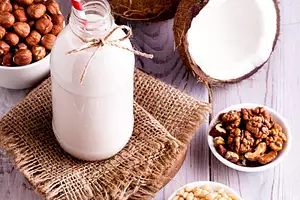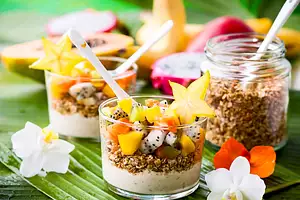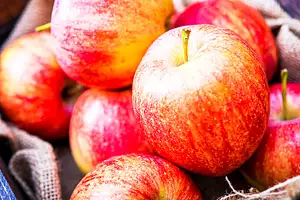With the incidence of stroke increasing on a global level, researchers are seeking ways in which the risks can be reduced. A recent study examined how eating more fruits and vegetables may help to cut the risk of stroke in both men and women, throughout the entire world.
According to the American Heart Association, adults should be consuming 4-5 servings daily of fruits and vegetables, assuming they take in approximately 2,000 calories. Those diets that are rich in fruits and vegetables, in a variety of colours and types, are the most balanced and provide the most vitamins, minerals and nutrients.
There is also a high amount of fibre in fruits and vegetables, and nearly no saturated fat, so they are always going to be a healthy choice. Unfortunately, most surveys and studies show that the average adult does not get enough fruits and vegetables on a daily basis.
The recently published study analyzed 20 different studies that took place over a period of 19 years. There were more than 760,000 participants, both men and women, and the participants had a total of nearly 17,000 strokes.
The results of the study indicated that the risk of having a stroke decreased more than 30% for per 200 grams of fruit in the diet every day, the risk decreased more than 10% for every 200 grams of vegetables taken in.
Yan Qu, one of the lead researchers, explains, "Improving diet and lifestyle is critical for heart and stroke risk reduction in the general population. In particular, a diet rich in fruits and vegetables is highly recommended because it meets micronutrient and fibre requirements without adding substantially to overall energy requirements."
Our bodies do require a certain amount of carbohydrates, fats and proteins in order to function properly. These are referred to as macronutrients. In addition to the macronutrients, our bodies need a certain amount of micronutrients, like vitamins and minerals. Macronutrients generally provide energy for our bodies to function, while micronutrients help with the quality and efficiency of the functioning.
Consuming large amounts of micronutrients through fruits and vegetables can help to reduce inflammation in the body, control blood pressure and improve overall heart and vascular function. Fruits and vegetables help to combat obesity, by helping to control body mass index—as well as cholesterol, waist circumference and other risk factors for stroke.
The findings of the study were adjusted for other risk factors, such as age, smoking, gender, alcohol use, blood pressure, level of exercise and certain other variables. The advantages of fruits and vegetables were seen across all groups, for both men and women, and for people of all ages.
It is unfortunate that most people consume far less fruits and vegetables than what is recommended. Low fruit and vegetable consumption is especially common in low-income or middle income countries and demographic groups.
But, according to the WHO, the risk of stroke could be reduced nearly 20% throughout the world, if every person increased their intake of fruits and vegetables to 600 grams per day.
SOURCES: https://www.sciencedaily.com/releases/2014/05/140508172221.htm;
https://www.webmd.com/stroke/news/20140508/fruits-and-veggies-may-lower-stroke-risk; Image courtesy of xedos4 / FreeDigitalPhotos.net










Comments